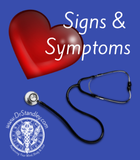
|

|
| Bach Flower Remedies |
Amino Acids A-Z |
Antioxidants A-Z |
Herbs A-Z |
Herbal Preps |
Minerals A-Z |
Vitamins A-Z |
Home |
About Me! |
Affirmations |
Angels |
Articles |
Bathing Recipes |
Camping, Survival, Prepping |
Horoscopes |
Nail Disorders |
Native American |
Novenas |
Prayers |
Shop |
Signs & Symptoms |
Spiritual Progression Path |
Systems of the Body |
Supplements |
Contact
Disclaimer & Privacy Statement
| 314.420.5099 |
| Questions regarding this site: webmaster@drstandley.com |
| Copyright 1999-2026: Dr. Loretta J. Standley - All Rights Reserved. |
| 314.420.5099 |
| Questions regarding this site: webmaster@drstandley.com |
| Copyright 1999-2026: Dr. Loretta J. Standley - All Rights Reserved. |
































 BIOTIN - (B-Complex Vitamin)
BIOTIN - (B-Complex Vitamin)